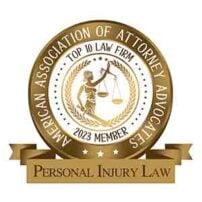New York received an F grade in nursing home care, highlighting the importance of being able to identify the signs of nursing home abuse.
When people admit their loved ones into a New York nursing home, they expect that their family members will be given the best of care. Sadly,
nursing home abuse is a growing concern in New York and in many states across the country. As the baby boomer population continues to age, the nursing home population is predicted to increase by at least 40 percent over the next few decades. With a shortage of well-trained and qualified nursing home staff and facilities, many people are wondering how this will affect the current elder abuse problem.
An evaluation conducted by the elder advocacy group Families for Better Care gave New York, and 10 other states, an F grade in comprehensive nursing home care. According to a CBS News report, the group performed an in-depth review of nursing home complaints, inspection reports and staffing information before grading each state. Another study that was conducted over a 2-year period, showed nearly 9,000 instances of abuse in over 5,200 U.S. nursing home facilities. In just over 1,600 cases, ABC News reported that residents were in danger of being significantly injured or even killed due to the severity of the abuse.
Although each abuse case is unique, there are some common signs of elder abuse. The National Center of Elder Abuse listed the following:
1. Unexplained bruising, bedsores, broken bones or scars
It isn’t uncommon for elderly people to have slight bruising or break a bone in an accidental fall. Their delicate skin and fragile bones can be easy to damage. However, excessive bruising, cuts, welts, broken bones or burns may be
signs of physical abuse. Torn clothes or broken eyeglasses can also indicate that inappropriate force has been used.
2. Weight loss and neglect
Neglect of a resident can lead to malnourishment, weight loss, dehydration, uncleanliness and in some cases, infection. Elderly people who need help bathing, getting dressed or going to the bathroom may not be given the proper attention. As a result, residents could remain in the same clothes for days, have bathroom accidents and live in otherwise unsanitary conditions. Not only does this increase the risk of illness, but it is demeaning and emotionally abusive as well.
3. Emotional withdrawal
Any victim of abuse may become uncharacteristically quiet and withdrawal from social situations. In the elderly population, however, this behavior may be even more pronounced. Nursing home victims may become severely depressed and develop feelings of helplessness. Some may be threatened that something will happen if they try to tell someone about the abusive behavior.
Legal action may be necessary
Once you discover that your loved one has been treated inappropriately in a nursing home facility, you may want to speak to an attorney regarding your legal options. It is crucial that you take action in order to prevent the tragic situation from happening to another innocent resident. A New York lawyer may be able to answer your questions and walk you through the legal process.











